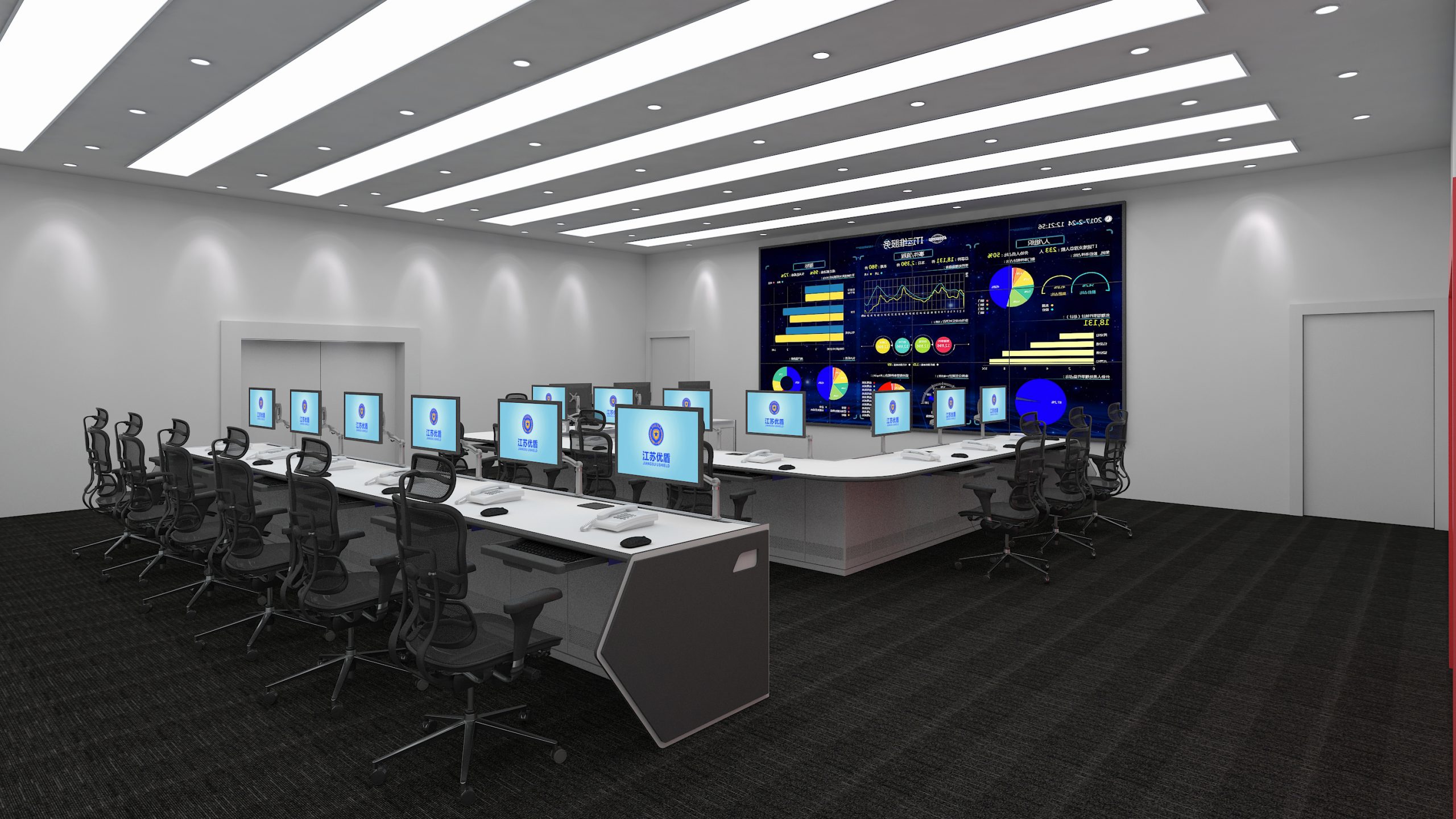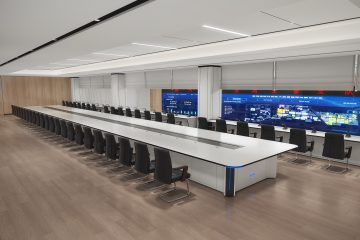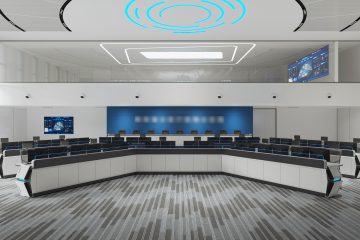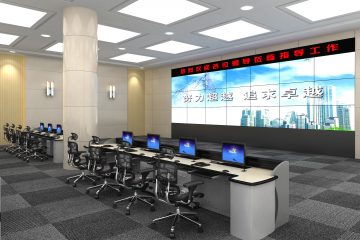Click me to visit our new website

The chemical industry is a key part of the economy, spanning sectors like energy, materials, and pharmaceuticals. It involves complex processes, strict technical requirements, and high safety risks. Command centers in this industry play a crucial role. They monitor, coordinate, and respond to production activities and emergencies. With advancing information and automation technologies, command centers are evolving. “Technical furniture,” as part of modern work environments, is becoming essential for improving efficiency and response. This article discusses the importance and role of technical furniture in chemical industry command centers.
1. Definition and Features of Technical Furniture
Technical furniture refers to specialized furniture integrating technology equipment and information management tools. It is designed for high-demand environments like command centers, control rooms, and data centers. Key features include:
- Ergonomic Design: Ensures comfort in human-machine interaction, reducing fatigue during long work hours.
- Equipment Integration: Effectively organizes technical devices such as monitors, keyboards, and servers for easy use.
- Modular Structure: Offers a flexible, customizable setup to meet specific needs and adapt to different scenarios.
- Data and Power Management: Includes built-in cable and power management systems to improve safety and reliability.
In the chemical industry’s command centers, technical furniture goes beyond desks and screens. It integrates technology, facilitates information sharing, and optimizes workflows, significantly boosting efficiency and responsiveness.
2. Key Roles of Technical Furniture in Command Centers
1. Improving Operational Efficiency and Visualization
A chemical enterprise’s command center is the brain of operations. It monitors multiple production lines, processes, and equipment statuses. Technical furniture integrates multimedia displays, control desks, and video walls. This allows real-time production data, monitoring screens, and alarms to be displayed in one place. Operators can easily monitor current production activities. This improves decision-making by reducing information delays and errors.
For example, with display walls and control desks, operators can view multiple processes simultaneously. This helps them quickly spot issues and take action, preventing potential safety hazards.
2. Optimizing Human-Machine Interaction and Safety
Safety is critical in the chemical industry. Any mistake can lead to severe accidents. Technical furniture is designed to improve human-machine interaction. It helps operators work comfortably and efficiently, even in high-pressure situations. Adjustable desk heights and monitor angles allow staff to personalize settings, reducing fatigue.
The furniture’s design also enhances safety. Cable management systems prevent accidents from tangled wires. Modular racks ensure proper ventilation, avoiding equipment overheating or failure.
3. Coordinating Emergency Responses
Unexpected equipment failures or process issues can arise at any time. In these cases, the command center’s quick response is crucial. Technical furniture helps create an efficient collaborative environment. Teams can share information quickly and work together. For example, dispatchers, operators, and engineers can use shared displays and data platforms integrated into the furniture. This enhances coordination.
When an emergency occurs, built-in alarms in the furniture can alert staff with sound and visuals. This helps them assess the situation and respond quickly, reducing the severity of accidents.
4. Convenient Data Management and Storage
Besides real-time monitoring, command centers also manage and analyze historical data. The equipment management modules in technical furniture store and archive large amounts of data. They seamlessly connect production monitoring systems, alarms, and command center platforms. This allows operators to retrieve historical data for trend analysis, identifying potential risks early.
At the same time, the furniture’s network and data management features ensure data reliability and security. This prevents data loss or tampering, which is vital for the safe control of production processes.
3. Future Prospects of Technical Furniture
As intelligent and automated technologies evolve, chemical industry command centers are becoming more connected. Technical furniture will continue to advance as part of this trend. In the future, it may include AI-based fault prediction, virtual reality (VR) training systems, and remote control features. These will further improve efficiency and intelligence.
With the Internet of Things (IoT) becoming more common, technical furniture will also be a key part of smart chemical plants. It will interact in real time with production equipment and sensors. This will create intelligent monitoring and management platforms. These advancements will increase automation, optimize resource use, and reduce energy consumption and environmental impacts.
In the chemical industry’s command centers, technical furniture is more than a support for equipment. It plays a vital role in monitoring, rapid response, safety management, and data optimization. By improving operator efficiency, enhancing human-machine interaction, and ensuring safety, technical furniture supports stable and safe production.
As technology advances and the chemical industry moves toward intelligent operations, technical furniture will play an increasingly important role. It will continue to support Technical Furniture in Chemical Industry.



0 Comments